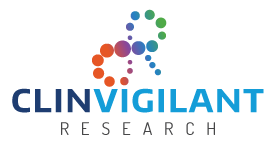Clinical Data Management
Expert Clinical Data Management for Quality Research Outcomes
Our Clinical Data Management services are at the heart of advancing clinical research. We ensure the highest quality of data handling, from collection to analysis, to support your clinical trials. Our team is dedicated to providing accurate, efficient, and reliable data management solutions, tailored to meet the unique needs of each study.

What is Clinical Data Management?
Clinical Data Management (CDM) is a critical phase in clinical research, focusing on collecting, cleaning, and managing data from clinical trials in a way that ensures its reliability and validity. CDM plays a pivotal role in the development of new pharmaceuticals, medical devices, and treatments by ensuring that the data used in research is of the highest quality.
Our CDM Services Include
Our databases have been devised to achieve precise endpoint specifications, and furnish fundamental attributes mandatory for the fine-tuned calibration of tailored regulatory report outputs. We present a comprehensive Data management solution, purposely crafted for your needs, that features the following specialized services:
Data Collection and CRF Design
We create customized Case Report Forms (CRFs) to facilitate accurate data collection that meets the specific requirements of your clinical study.
Electronic Data Capture (EDC) Systems
Utilizing advanced EDC systems, we streamline the data collection process, enhancing efficiency and reducing the likelihood of errors.
Data Validation and Cleaning
Our rigorous data validation and cleaning processes ensure the accuracy and consistency of the data, which is crucial for reliable analysis and decision-making.
Database Design and Management
We design secure and robust databases tailored to the specific needs of your study, ensuring seamless data integration and accessibility.
Data Coding and Standardization
Employing standard coding systems, like MedDRA and WHO Drug Dictionary, for adverse events and medication names to ensure consistency and clarity in data interpretation.
Data Security and Compliance
Adhering to strict data security protocols and compliance standards such as HIPAA and GDPR, we ensure the confidentiality and integrity of your data.
Data Analysis and Reporting
Offering comprehensive data analysis and reporting services to help you derive meaningful insights from your clinical data.
Regulatory Submission Support
Assisting in preparing and submitting data for regulatory review, ensuring compliance with regulatory requirements.
Why Our CDM Services Stand Out:
Customized Solutions
Each clinical trial is unique, and we provide tailored data management solutions to meet the specific needs of your study.
Expert Team
Our team of data management experts brings years of experience and deep knowledge in managing clinical trial data.
Advanced Technology
Utilizing the latest technology and software to ensure efficient and accurate data management.
Commitment to Quality and Compliance
We are dedicated to maintaining the highest standards of quality and adhere strictly to regulatory guidelines.

